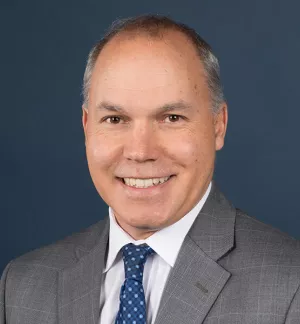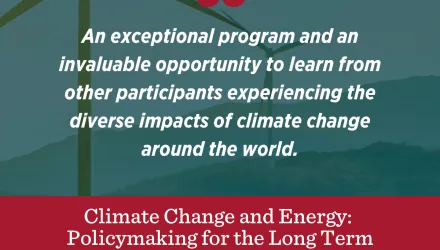The Climate and Energy Roundtable
After November 2008, progressives believed that America was, at last, serious about tackling climate change and our dependence on foreign oil. But the years since have been discouraging. Cap-and-trade, the idea that progressives had coalesced around, collapsed. Worse, polling has shown that Americans have become increasingly skeptical about the very idea of climate change. As we head toward another presidential election year, prospects for a breakthrough on climate and energy policy seem remote.
In the wake of these disappointments, what should progressives do next? For this edition of "America 2021," our roundtable series, we ask: Where will America be in ten years on the climate and energy front? What new problems will we be facing—and what old ones will still be plaguing us? And what policies and ideas do we need to enact in the intervening years to ensure that we’re in a much better place in 2021 than we are in 2011?
For this discussion, we brought together five distinguished experts: Joe Aldy, Vicki Arroyo, Alex Laskey, Manik Roy, and Lexi Shultz. Bryan Walsh, energy and environment reporter for Time magazine, moderated their discussion. Editors Michael Tomasky and Elbert Ventura also participated.
Bryan Walsh: It's 2021. You’re in the Oval Office talking to the president. What are the priorities you’re identifying on energy and climate policy? What sort of actions will we be taking at that point?
Manik Roy: In the next few years, we will not be putting together the optimal climate policy. Instead we'll be doing things in chunks. I'm assuming the EPA's ability to regulate greenhouse gases under the Clean Air Act will survive, and we will do what we can under that law. But I don't think our efforts will be as good as what many of us were trying to do. By 2021, we’ll recognize that what we’ve been doing is not the best approach for either the environment or the economy, and we’ll be trying to fix it.
Vicki Arroyo: I think I can paint an optimistic view, especially listening to businesspeople who are really doing great things in terms of promoting efficiency and renewables in electricity, or transportation, with investment in hybrids and plug-ins. Looking at that, we really could be in a different place in 2021.
But I could also imagine, having lived through the last decade or more working on this issue, that we're stuck in an unhelpful pattern. We have a lot of regulatory uncertainty, which makes investment difficult. And there's a boom-and-bust cycle when it comes to things like incentives, so we never really developed a coherent policy. Unfortunately I think that's just as likely a scenario.
Joe Aldy: By 2021, I'm actually optimistic we’ll see a price on carbon. This is not because I think people are going to see the light on climate policy, but because at some point in the near future, we're going to have to have a serious conversation about fundamental tax reform and the long-term fiscal outlook. When we start having that serious conversation, we'll recognize we have to raise more revenues. And a price on carbon is one of the biggest revenue raisers that will be on the table, and the vast majority of the revenues from the price on carbon are going to be dedicated to tax cuts and deficit reduction. It's going to be hard for people trying to solve the fiscal situation to walk away from that.
Is the price going to be at a level that really fundamentally drives a lot of innovation and a lot of new technologies? I think it’s going to be relatively low, and that's one of the challenges: How do we scale it up to a level that's appropriate to drive innovation and reduce emissions? That's part of the challenge that the president a decade from now will have to confront.
The other thing is, by a decade from now, if the climate science is right, we're going to see climate change have real, material, adverse effects on peoples' lives in some parts of the world. It will start to become more and more of an issue in our security relationships and our military posture. That will be a greater part of the consideration in 2021.
Alex Laskey: I largely agree. There will be a price on carbon by 2021—there has to be, for economic and political reasons. It was Republicans who were initially in favor of cap-and-trade, so I think they will come around. But it's going to happen incrementally. The price will be a low price by 2021, but that's okay.
We need to stop looking only for a grand bargain on energy and climate policy. We don't need to solve every problem all at once. I think this Congress would do well to look at a national energy efficiency standard that mandates specific energy-efficiency goals for electric providers, like conserving the equivalent of 20 percent of all power sold. Half the states have adopted these kinds of polices in the last decade, including states like Texas, Ohio, and Arizona. One advantage is that while there is enormous political disagreement about how to allocate the energy-generation pie—how much goes to solar versus nuclear versus natural gas—there is a broad consensus that no matter where the power comes from we need to waste less of it. And if we can encourage and achieve energy efficiency, it then increases the appetite to raise the price of power over time.
The reason I'm hopeful is all the scary things that Joe pointed to. Last year, some 19 countries set records for high temperatures. Months after the floods in Pakistan, millions are still homeless. The evidence is abundantly clear, and it will become clearer to more people over the next ten years. It's a losing political battle to ignore it, so the people who are continuing to suggest that climate change isn’t real will either lose or change their minds....
Continue reading: http://www.democracyjournal.org/21/america-2021-what-next-on-climate.php
The full text of this publication is available via Democracy: A Journal of Ideas.





